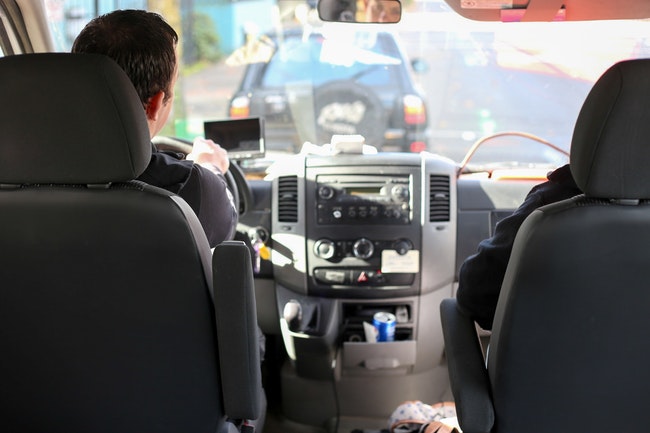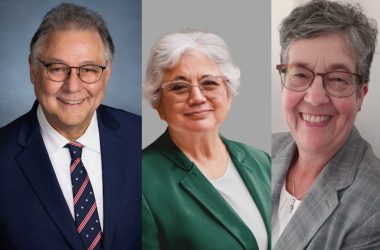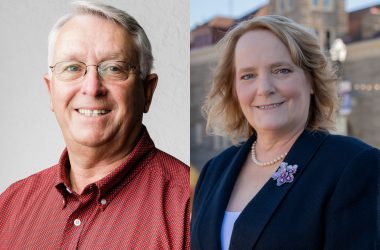A new crisis response team intended to help Marion County residents enduring mental health stresses has seen few calls for that help in two months of operation.
The county’s long-awaited mobile crisis program pairs mental health workers with addiction recovery mentors to respond to some crisis calls instead of police.
County officials first announced plans for the “community response team” in November 2022 but struggled to hire qualified mental health professionals, delaying the rollout of the program.
Public agencies have increasingly turned to mobile crisis response as a more effective and affordable way to handle 911 calls related to mental illness, addiction and homelessness. A similar program in Eugene, CAHOOTS, has received national attention in recent years as more U.S. cities look for alternatives to law enforcement responding to mental health concerns.
Marion County’s new civilian crisis program started operating on Jan. 1. The team is dispatched by crisis intervention specialists to low-risk incidents to help de-escalate people in crisis and refer them to services.
One team responds to calls Sunday through Wednesday from 7 a.m. to 5:30 p.m. County officials hope to create three more teams in the coming months.
The program is funded in part by Marion County’s $6.4 million share of funding from Measure 110, the 2020 ballot measure that decriminalized the possession of small amounts of street drugs and funneled money into treatment programs.
That money funds the recovery mentors, while the county directly covers the costs of the mental health workers.
The new team’s calls typically come through 988, a national suicide and mental health crisis hotline. Police can also call the hotline and put a person in crisis in contact with a dispatcher, but in that circumstance the person has to consent to meeting the crisis team.
Debbie Wells, director of the county’s Behavioral Health Crisis Services Division, said the team is eager to do the work. But they’ve only responded to seven calls over about two months.
Wells said that’s likely because the rollout of the 988 hotline has been slow and most people aren’t aware it exists.
“I think there’s some education that needs to go along (with) that process so that folks really understand that we are available to respond,” she said.
She added that the county is considering other ways the team can respond to people in crisis, such as police calling them directly.
Wells said she did not have an estimate for how many people the county expected to serve when the concept was developed.
“I would say we anticipate as we continue to respond to the community and word gets out about our teams responding our call volume will increase,” she said in an email.
Eugene’s CAHOOTS program in 2021 responded in person to 16,479 calls for service, according to the city’s website.

Marion County’s Health and Human Services Department has hired three mental health associates for the additional teams but still needs three recovery mentors.
“We get a lot of applications. Folks just don’t always meet the requirements needed,” according to Wells.
Recovery mentors generally have personal experience with substance abuse and addiction. Job requirements include a high school diploma or equivalent and being two years in recovery from substance use.
The county offers a relocation bonus, hiring bonus and tuition reimbursement as incentives for people to apply. Wells said she anticipates hiring for a second team in the next month or two.
Meantime, the mental health associates awaiting mentor partners are doing training required for the crisis teams and otherwise helping with work in the office.
Under the program’s current model, four teams would respond to crisis calls every day. Daytime shifts would cover 7 a.m. to 5:30 p.m., and night shifts would be 9 p.m. to 7:30 a.m.
But there would still be a gap in service between the shifts. Wells said the county would likely need to add an evening swing shift to cover those hours.
A person can call 988 to ask for help for themselves or someone they are close with.
But a recent poll from the National Alliance on Mental Illness showed 82% of Americans aren’t familiar with 988, which has been operating since 2022.
“The lack of national 988 communications efforts have also led to some misinformation and mistrust of 988,” according to Stephen Goins, chief operations officer for Northwest Human Services. The nonprofit operates the hotline’s call center serving Marion and Polk counties.
“It’s understandable that some people may be hesitant to call a crisis number – or not understand the difference between 988 and 911 – especially if they have experienced an emotional or mental health crisis in the past, have been adversely impacted by systemic and historical social injustice or have experienced harm or mistreatment by police or health care systems,” Goins said in an email.
He said the Oregon Health Authority is working on a campaign to promote the hotline, and his organization will continue distributing information about its benefits.
Goins said over 9 out of 10 of calls to 988 both locally and nationally are resolved over the phone by the crisis specialists.
The dispatcher will do their best to de-escalate in the moment if possible before sending out the team, Wells said. But callers must agree to see a crisis responder before they will be dispatched.
“They have to be willing to engage with us or we will not respond,” she said.
The responding team assesses the person’s condition and determines whether they are safe to remain in the community. If not, they can take the person to the county’s Behavioral Health Crisis Center to be evaluated by a mental health professional.
The team has access to all resources within the health and human services department to provide follow-up help. That includes helping get them directed to agencies that can address rent, food, medication and insurance.
“Anything that they’re needing, wanting, we can at least get them pointed in the right direction, if not help them here in the office directly,” Wells said.
Of the calls the team has responded to so far, two people couldn’t be located in the field, and three were taken to the crisis center for evaluation.
The other two were “stabilized in place,” Wells said, “so it was just a matter of safety planning and ensuring that they have a safe environment, whether it was a good support person or somebody to be with them.”
She said most people that teams meet on the scene will likely receive short-term psychotherapy or crisis counseling to address the immediate issue and put safety measures in place.
If the person asks for the team’s help but then revokes consent after they arrive, the process can change.
Wells said if the team determines a person is in imminent danger, they can compel police to take the person to the hospital for care.
“But that is exactly what this team is trying to avoid. We work very diligently to not have to do that,” she said.
RELATED COVERAGE
Facing hiring difficulties, Marion County mobile crisis teams are still months from operation
Marion County to create mobile crisis teams separate from police
UPDATED: Salem City Council wants funding identified for mobile crisis response
Salem Budget Committee recommends funding for mobile unit to respond to crisis calls
‘You want a resolution as much as possible’: Six hours with Eugene’s mobile crisis intervention team
Contact reporter Ardeshir Tabrizian: [email protected] or 503-929-3053.
SUPPORT OUR WORK – We depend on subscribers for resources to report on Salem with care and depth, fairness and accuracy. Subscribe today to get our daily newsletters and more. Click I want to subscribe!

Ardeshir Tabrizian has covered criminal justice and housing for Salem Reporter since September 2021. As an Oregon native, his award-winning watchdog journalism has traversed the state. He has done reporting for The Oregonian, Eugene Weekly and Malheur Enterprise.









